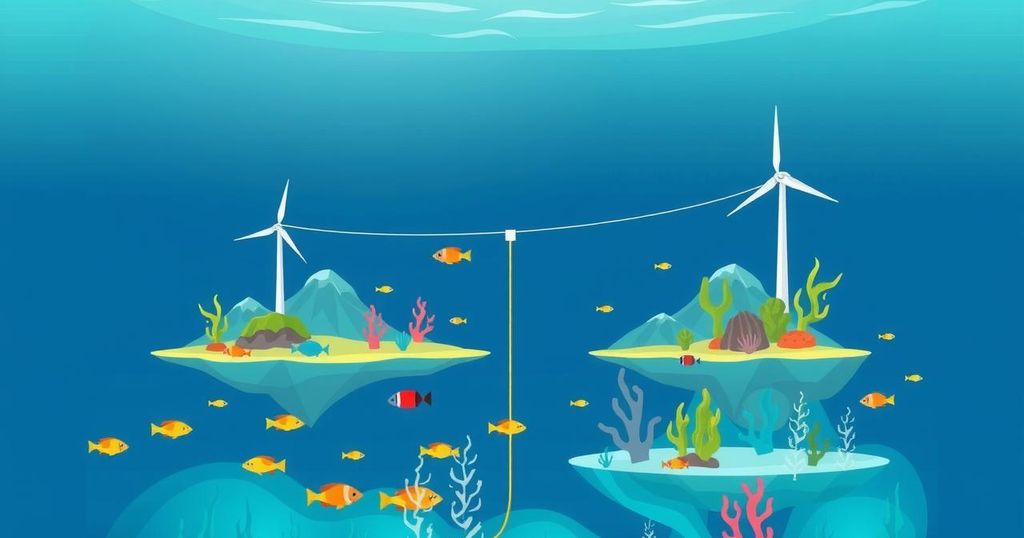Greece and Egypt Solidify Commitment to Undersea Power Cable Project

Greece and Egypt have renewed their commitment to a proposed undersea power cable intended to facilitate the transfer of renewable energy from North Africa to Europe. This reaffirmation was made during discussions between Greek Prime Minister Kyriakos Mitsotakis and Egyptian President Abdel Fattah el-Sissi in Athens, alongside other cooperation agreements.
In a significant step toward enhancing energy collaboration, Greece and Egypt have reiterated their commitment to a groundbreaking undersea power cable project. This initiative aims to establish an electrical interconnection that will facilitate the transmission of renewable energy derived from North Africa to the European continent. The announcement was made during a meeting in Athens between Greek Prime Minister Kyriakos Mitsotakis and Egyptian President Abdel Fattah el-Sissi.
The discussions, which took place on Wednesday, followed the signing of various cooperation agreements highlighting the partnership between the two nations across multiple sectors. Both leaders emphasized the importance of this project not only for energy sustainability but also for fostering economic ties between Greece and Egypt.
Prime Minister Mitsotakis expressed optimism, stating that the undersea cable could be a pivotal component in Europe’s transition towards renewable energy sources. He noted that this interconnection would enable Greece to play an instrumental role in the energy supply chain from Africa to Europe, enhancing energy security in the region.
President el-Sissi echoed these sentiments, underscoring that the cooperation signifies a forward-thinking approach to energy challenges. By tapping into North Africa’s vast renewable resources, Egypt is poised to emerge significantly as a supplier of green energy to Europe, which is increasingly focusing on sustainability to combat climate change.
The initiative signifies a strengthening of bilateral relations and highlights both countries’ objectives to advance their positions in the international energy landscape. The cable project, if successfully implemented, is expected to enhance infrastructure and contribute to a greener economy in the region and beyond.
As European nations strive to diversify their energy imports away from traditional fossil fuels, this proposed interconnection could be crucial. With plans expected to move forward, the implications for future energy dynamics between Europe and Africa could be transformative, marking a significant shift in how energy is produced and distributed across borders.
In summary, Greece and Egypt are taking decisive steps in renewable energy cooperation. The pledge made between their leaders promises further developments in the essential undersea power cable project that could enhance energy security in Europe while promoting sustainability in the face of climate challenges.
This strong partnership not only demonstrates commitment to green energy but also illustrates the interconnectedness of global energy needs as countries work together towards a sustainable future.
In conclusion, Greece and Egypt have reaffirmed their commitment to a significant undersea power cable project aimed at transmitting renewable energy from North Africa to Europe. This initiative, discussed during a high-level meeting in Athens, showcases both nations’ focus on sustainability and strengthens their bilateral relations. The impact of this cooperation could reshape energy dynamics between Europe and Africa as they collectively address climate challenges and secure a greener future.
Original Source: www.thespec.com








